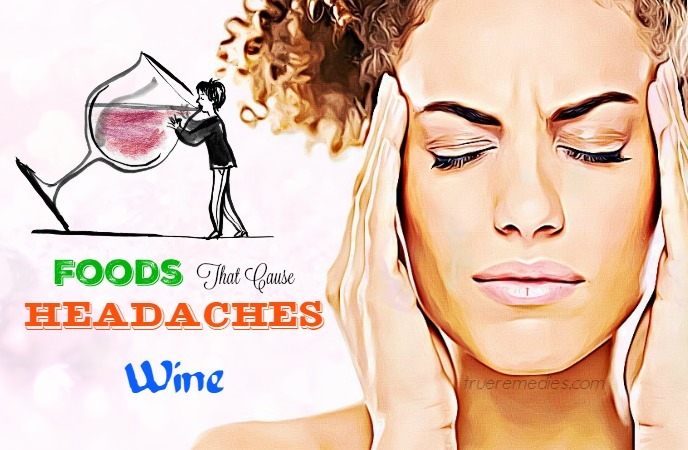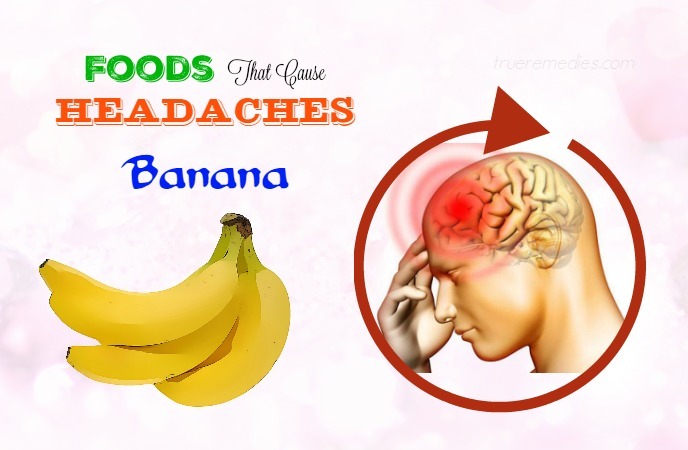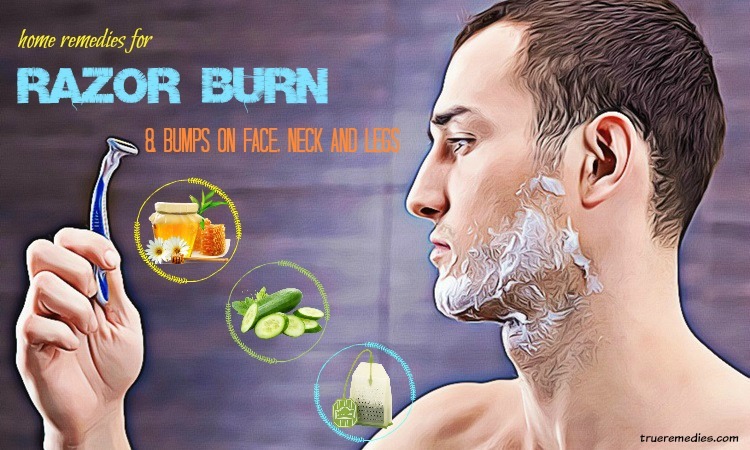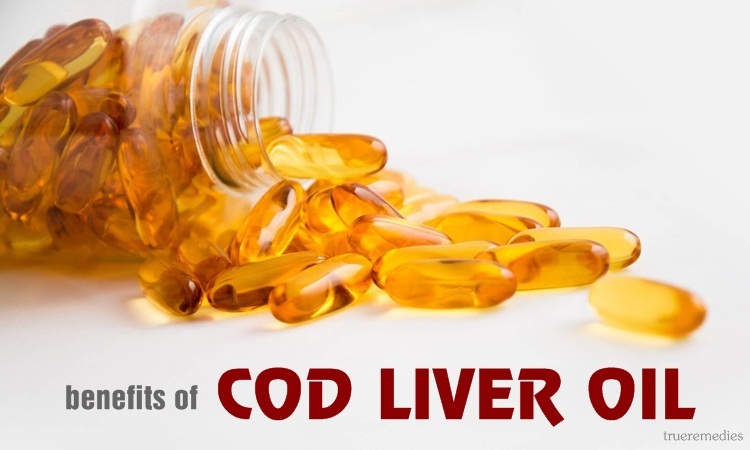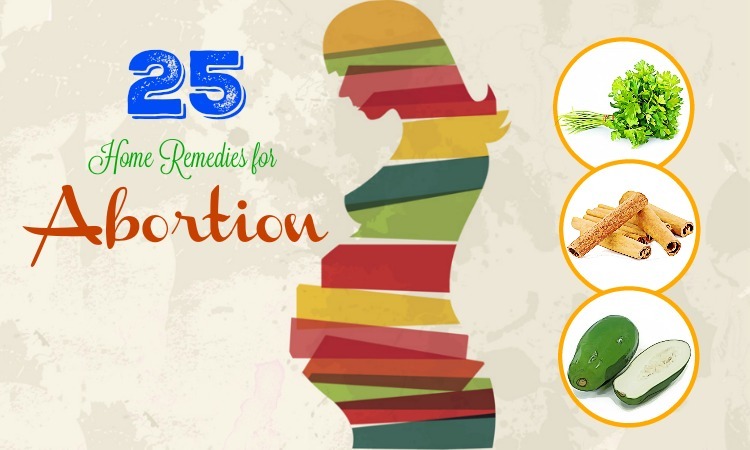Updated: 10/24/2019
CONTENTS
Headache is a common disease in life, but it can also be a symptom of other diseases. It usually occurs when you have stress, sleeplessness, long hours of work on the computer, frequent use of alcohol, stimulants … Although not life threatening, it reduces the quality of life reduced and affects all the daily activities and morale of the patients. This phenomenon is a symptom can be encountered in many different diseases, even in very dangerous diseases needed to be timely emergency.
Are you worried about this problem? Don’t worry, the following article will help you. The common foods that cause headaches are very variety and you can get rid of it whenever you feel a headache. However, before that, let’s learn some basic information about this disease to get the best view on it and also help you determine the condition of your headache to have the most appropriate treatment.
What Is A Headache?
Headaches have a variety of pathologies, the most common of which is a migraine. Patients often describe a migraine through symptoms: pain on one side of the head (left, right, forehead, nape, etc.). A headache with accompanying symptoms: nausea and vomiting, dizziness, fear of scent, fear of noise, and visual disturbance. The pain usually lasts 2-4 hours or even a few days. You can self-treat headache at home. However, see a doctor right away if you do not feel better or if you notice some warning signs.
According to statistics from the World Health Organization, 70% of people have experienced headaches within a year. The pain often makes the person feel uncomfortable, it gets worse and worse every time they engage in physical activity such as climbing stairs or walking. In addition, the disease will also occur at all ages, but more commonly in people between the ages of 25 and 30 and between 30 and 39.Many scientific studies also show that women are more prone to headaches than men. Up to half of women in developed countries suffer headaches at least once a year.
What Are Common Causes Of Headaches?
- Primary Headache Cause
A primary headache is a migraine whose cause usually involves the dilation of blood vessels in the skull and the intermediate chemicals secreted by the nerve fibers that surround it. It is found that when the pain arises, the temporal artery is dilated (the temporal artery is a branch of the artery outside the skull, just below the temporal skin). When the artery dilates, it stretches the nerve fibers nearby. The nerve fibers in the tense secretion of chemicals that can cause pain, inflammation, and blood vessels dilate, causing the headache. This migraine is usually not diagnosed or is mistakenly diagnosed with headaches due to stress, headaches due to sinusitis, so many people suffer from this type of a headache without proper treatment.
TrueRemedies Partner Solutions

Need a Help from the Leading Expert Online, Available 24/7?
They’re all here and ready to answer your questions online or by phone. Keep asking questions until you get the answer you need.
- Secondary Headache Cause
Secondary headaches include symptoms such as sinusitis and high blood pressure. This is also the cause of a secondary headache. There are many serious causes such as brain tumors, brain injury, meningitis, and subarachnoid hemorrhage. The milder causes (and more commonly) are due to giving up coffee, hypertension, sinusitis, ear infections, gingivitis …
- Causes From Outside Impact
Weather changes: Weather impacts on human health. Whenever the weather changes, such as the season is delivered, the storm is prepared … the airflow in the atmosphere will change markedly. This change affects our bodies, especially the nervous and circulatory system, which causes the brain signals to become disordered, the blood vessels contracting abruptly leading to pain in the body and headaches. People with low blood pressure, high blood pressure, chronic sinusitis, and chronic arthritis will feel this change most clearly.
Sleepless: Sleep deprivation, sleeplessness…can cause the number of serotonin hormones in the body decreased. When serotonin decreases, blood vessels dilate, at the same time, it is aggressive stimulation of the nerves associated with headaches, especially migraines, causes the nerves to release painful chemicals.
Perfume: Perfumes contain many different ingredients to create the scent, preserve and add to the attraction. In order to reduce the rapid evaporation of fragrances, the manufacturers added more volatile constituents, usually aromatic and musk. These volatile constituents are responsible for triggering the trigeminal nerve to cause the nerves to release substances against foreign chemicals, thereby causing headaches and dizziness.
- Other Causes
There are also other causes: decreased thyroid function because the thyroid does not produce enough thyroid hormones; frequent carbon monoxide (CO) poisoning; Parkinson’s disease; using drugs such as indomethacin, estrogen, progestin, calcium channel blockers (commonly used to treat hypertension), selective serotonin reuptake inhibitors (drugs to treat depression). Abuse of a headache medication quickly, a specifically overdose of pain medication can create the status of “drug resistance”. Because the effect of drugs, headaches cannot be controlled anymore. Myocardial ischemia (usually coronary artery disease): myocardial ischemia, which causes angina, can also cause headaches. The causes of secondary headaches also include brain tumors, including primary and cerebral neoplasms from other places such as the breast and the lung; Subdural hematoma (the membrane is a membrane that envelops the brain) after flowing from a broken brain vein. Malignant hypertension also causes headaches (mild or moderate hypertensive attacks usually do not cause headaches).
If you have frequent headache sensation, check with your doctor to find out the exact cause of the condition.
Headache Classification
- Migraine
It is caused by vascular nerve, occurring on one side of the head with a burning sensation of the scalp, such as burns with tinnitus, blurred vision, and nausea. About 11% of the world’s adult population in the world is suffering from migraines, in which women account for three-quarters.There are many causes, but according to the scientists’ analysis, there is a clear correlation between brain changes leading to abnormal neurological events to moderate to severe migraines. Recent studies have shown that free radicals are one of the most dangerous triggers for a migraine. At the brain, free radicals are produced continuously, depositing on the walls of blood vessels, promoting the process of atherosclerosis, narrowing the arteries that block the oxygen-carrying blood on the brain. In addition, free radicals and intermediate chemicals produced during brain metabolism increase white blood cell activity, trigger inflammation, produce vasodilators that damage endothelial cells causing migraines.
- Cluster Headache
Caused from the vascular nerve, cluster headache is mainly in middle-aged men and most smokers. However, recently the rate of female cluster headache is also gradually increasing. The pain occurs after sleeping for 1 to 3 hours and special severe when you wake up. Pain can occur in clusters, localized in the first half, pain in the back of the eye, spreading to the forehead and temples, accompanied by a stuffy nose, tears, nausea…
- Headaches Due To Stress
Headaches due to stress are quite common with migraines. Headaches due to stress are less likely to develop thromboembolism and are usually progressive, unlike a migraine headache (which is quite rapid and unexpected). The duration of the pain usually lasts and it often changes, but the nature of the pain is stable, and the intensity of the pain is not as severe as migraines.
- Chronic Daily Headaches
This type of headache lasts for more than 15 days a month, often with combined illnesses such as depression, anxiety, bipolar disorder, panic attacks, and stress. Most of these headaches do not detect abnormalities in the brain. If untreated, it causes bodily discomforts such as nervousness, insomnia, stomach pain, as well as depressive symptoms such as anxiety and even personality changes.
What Are Symptoms Of Headaches?
- You feel dizzy: A migraine can cause dizziness, double vision, or loss of vision. Therefore, migraine sufferers often feel more unbalanced and dizzier than those with normal headaches. Some people even see the light of lightning or a light rail or a dim point, they move in a continuous curve running through the eye.
- Sudden pain in one or both sides of the head: A headache that is characteristic of the heartbeat is a typical sign of a migraine. Feeling of throbbing usually appears on one side of the head, a study in migraine patients found that about 50% of the patients had frequent symptoms.
- Nausea or vomiting: According to a study in the United States, 73% of patients had nausea and 29% had to vomit. Patients who have frequent nausea with migraines are usually more likely to have worse symptoms than those without symptoms.
- Changing mood is one of the signs of migraines: Some patients feel depressed or suddenly down for no reason, while others experience the abnormal excitement.
- Numbness or Tingling: Some people with migraines have numbness, tingling sensation or the feeling of a needle on one side of the body, numbness or tingling that moves from the tip of the finger to the arm and currently on the face.
When To See A Doctor?
There are many causes for you headaches. In some cases, you can treat this condition at home. If you are constantly headaches for more than 48 hours, it is best to see a doctor. You should also see your doctor if you have a severe headache or have a headache medicine that is not effective. In addition, when your headache is affecting your life too much, then you should see a doctor for advice.
There, you have discovered some information about headaches. Treatment of headache can be supported by a suitable diet. It is time to find out what foods that cause headaches and migraines are so that you can stay away from them if you notice a signal of this condition. Take a look at TrueRemedies.com!
Top 10 Common Foods That Cause Headaches And Migraines
1. Wine
This is the first common food in the list of top 10 common foods that cause headaches and migraines. Wine, especially red wine, is considered one of the leading migraine agents. According to a review of Brazilian researchers, migraine patients reported that alcohol may have played a role in 30% of headaches and more[1] [2] [3].
Reasons of headaches when drinking wine are:
- Allergic to certain substances in wine. Symptoms of a headache can be caused by one or two compounds: sulfite and amine (amine) in wine.
- Wine is usually made from fermented grapes. Grape berries not only contain fermentation to turn grapes into wine but also vinegar that can damage wine. Some winemakers add sulfites (salts of sulfuric acid) to the wine to prevent the wine from spoiling. In addition to wine, many other foods also contain this sulfite for better preservation, because sulfite inhibits the growth of mold and bacteria, oxidizing it to alcohol preserves its natural flavor of wine longer. It is possible that you have allergies to sulfites, causing headaches when drinking wine.
- Alcohol contains two kinds of amines: histamine and tyramine. In which, histamine dilates blood vessels in the human brain and tiramin as vice versa, causing blood vessels to contract. These two activities are contradictory and they cause headaches for alcoholics who are sensitive to one or both of these amines. Like sulfites, amines also appear in other foods such as cheese and corn tortillas. And if you have headaches, you probably already know the cause. You should also keep in mind that wine always has more sulfites and ammonia than any other food or drink. The more you drink, the more headaches you have – if you are allergic to sulfites or amines.
- Due to dehydration: Whenever we drink alcohol and beer, we will urinate many times leading to dehydration. Alcohol and beer inhibited the formation of vasopressin, which prevented the body from preventing frequent urination. When the body is dehydrated, symptoms such as migraines, dry mouth sometimes puts people in a coma, sleep after drunkenness.
- Acetaldehyde: Acetaldehyde is an enzyme called dehydrogenase that converts alcohol into the body, a carcinogen that can damage DNA. Acetaldehyde combines with proteins that cause abnormal muscle growth that can cause bad effects on the body.
- Hypotension: Alcoholic beverages can lower blood pressure in the brain by expanding the blood vessels that supply the brain. These changes can cause headaches and sensitivity, leading to headaches.
These reasons are still being debated; some experts believe that there are substances in wine, like tannins and flavonoids. A 2014 study suggested that red wine containing high amounts of tannins – such as cabernet sauvignon – is even more likely to trigger migraines. In addition, alcoholic beverages also cause dehydration, which can also contribute to a headache as a migraine.
2. Caffeine
Among common foods that cause headaches, caffeine is one of the most noticeable foods. Caffeine has the effect of causing headaches and migraines by over-using. If you are prone to migraines, it may be necessary to review the amount of caffeine or caffeine a day: Too many of these can cause migraines. The cause is that caffeine acts on some brain receptors that are associated with migraines, according to a 2009 review. Limit caffeine drinks to 240-360ml / day[4] [5].
Caffeine is a substance that stimulates the central nervous system. Frequent use of caffeine will cause mild physical dependence. But caffeine does not threaten the physical, social or economic health of the way other drugs do.
If you regularly drink two or more cups of coffee a day and suddenly stop using caffeine, your body may experience some symptoms that last for a few days. Symptoms of caffeine-freeness include: headache, fatigue, anxiety, agitation, moodiness, difficulty concentrating. However, there is a paradox: Caffeine has an analgesic effect. Taking a small amount of this substance, pain can actually dramatically reduce the headaches – as long as you do not overdo it.
3. Cheese
This is also one of little-known foods that cause headaches and migraines. A lot of people are interested in cheeses because of the rich flavor and rich texture – also considered the perpetrator of a migraine. Cheeses contain high levels of protein. High protein foods increase tyramine – a substance that causes headaches. Therefore, you should choose the right type of cheese and avoid eating this kind of food too much.
4. Monosodium Glutamate (MSG)
This is also among foods that cause headaches that few people know, but this is true. Monosodium glutamate (MSG) has been widely condemned in the past few years mainly due to its association with obesity. Few people know that this is also a suspect who causes migraines.
Although there is no confirmed evidence, a 2008 study suggested that this component causes 2.5% of headaches. If you are going to avoid MSG, remember that it is not only present in ready-to-eat foods and ready-to-eat products, but also naturally in foods like tomatoes and cheese and in ingredients such as vegetable protein hydrolysis[6] [7].
5. Foods That Cause Headaches – Citrus Fruit
The next food item in this list of foods that cause headache that this article refers to is citrus fruit. Citrus is still controversial – some studies have found a link between migraines and citrus fruits, while others have not. Citrus fruits that contain phenylethylamine cause headaches. However, it may be that citrus fruits cause migraines in some people, and it is certain that the fruit is within the reach of professionals as a disease-causing culprit – although rare[8].
To help find out what is causing the disease, experts recommend that you should track and record for your headache condition, severity, and foods and medications used.
6. Aspartame Chemical Sugar
Chemical sugar is not a good substance for health. It is also a leading cause of headaches in many people. Sugar chemically stimulates some nerves, cause tension and direct pain. Based on well-conducted controlled trials, doctors often advise migraine patients to reduce this type of sugar in the diet. This low-calorie sweetener can be found in ready-to-eat foods and beverages, including diet sodas, breakfast cereals, pastries, and jellies. Be careful, do not eat too much foods that are high in sugar (aspartame) such as soft drinks, creams, and chewing gum.
7. Banana
Bananas are foods that are high in nutrients and vitamins. People love to eat bananas at breakfast. However, let’s avoid eating this fruit when you have headaches. Bananas contain a tyramine compound that can trigger and aggravate headaches. Ripe bananas have higher tyramine levels, meaning if you bananas longer, the more likely you are to get headaches. Therefore, it is best to eat bananas when the bananas are not too ripe. Eating too many bananas regularly will cause nerve damage because bananas contain a lot of vitamin B6. This vitamin helps you maintain a healthy nervous system, as well as helping your body to disperse carbohydrates and fats. However, taking too much vitamin B6 in your body can produce toxins, which can damage your nervous system and numb your limbs. Maximum vitamin B6 needed for the body during the day is 100 milligrams, while a banana can supply 0.8 milligrams of Vitamin B6.
In particular, tyramine is abundant in banana peels. Therefore, you need to pay attention to peeled banana carefully before eating to reduce the amount of tyramine absorbed into the body.
8. Chocolate
This is another food item in this list of foods that cause headaches that few people know. Chocolate contains caffeine that causes a migraine. If you have a cocoa allergy, you may feel a headache if you eat only a little chocolate. Phenylethylamine and theobromine are two components in chocolate that can dilate the blood vessels causing headaches to appear right after you eat chocolate. So when you eat the chocolate you have to pay attention not to eat too much at once and not eat too many times a day[9].
9. Processed Meats
The next one in this list of foods that cause headaches is processed meat. Processed meats or fast foods such as hot dogs, sausage, pepperoni, ham sandwich, and even turkey sandwiches can cause migraines. These types of meat contain a preservative, sodium nitrate, and the researchers speculate that the additive also causes changes in the brain’s chemical system, which contributes to headaches.
In addition, processed meats contain monosodium glutamate, the sodium salt of glutamic acid, which is one of the causes of headaches. In addition, fast food is also digested longer, causing the blood to rush to the brain quickly causing headaches.
10. Ice- Cream
This is one of the foods that cause headaches that few people know. Ice cream is the favorite dish of many people. However, not many of us know that it is one of the foods that cause headaches. A headache caused by ice cream also known as frozen brain, headache due to cold stimulation, derives from the too quick intake of food or cold water. Therefore, when eating cold food, then we should eat slowly. Limit your cold food intake several times to cure your headache or avoid having this problem[10].
The above-mentioned are common foods that cause headaches and migraines that everyone should know to avoid overusing them when they have headaches. If you have any contributing ideas about our article of “Top 10 Common Foods That Cause Headaches And Migraines” introduced in Superfoods Category, do not hesitate to drop your words below this post. We will answer as soon as we could.



